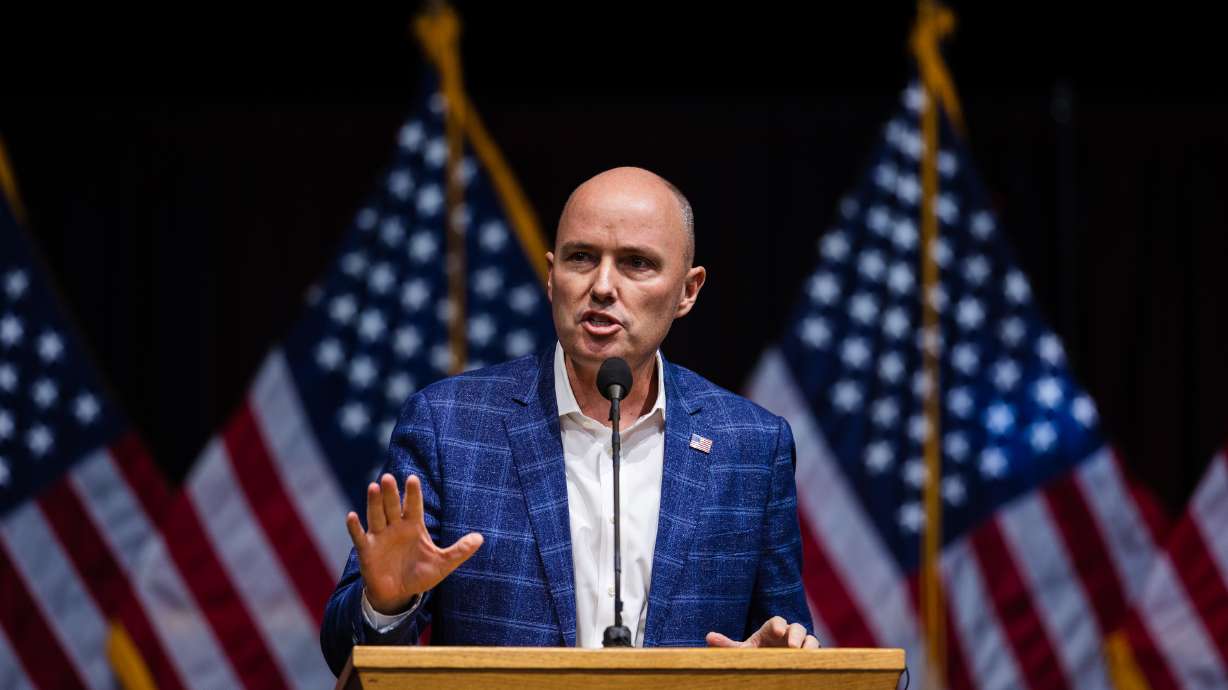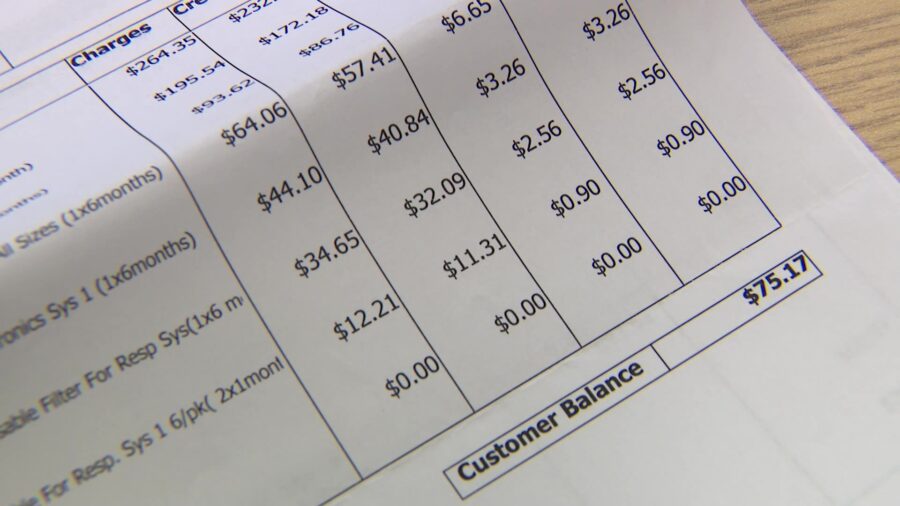Cox condemns White House rule on transgender athlete participation in sports
May 13, 2023, 11:41 AM

Utah Gov. Spencer Cox is one of 25 Republican governors to ask the White House to withdraw a rule that would prohibit broad bans on transgender athletes competing on a team that matches their gender identity. (Ryan Sun/Deseret News)
(Ryan Sun/Deseret News)
SALT LAKE CITY — Utah Gov. Spencer Cox is among a group of Republican governors who are taking aim at a White House rule that would prohibit states from passing blanket bans of transgender athletes participating in school sports.
In a letter to Education Secretary Miguel Cardona, Cox and 24 other governors say the rule overreaches state rights and they called on the administration to delay the implementation of the rule until the Supreme Court can weigh in on the subject.
“If (the rule is) not withdrawn, we are gravely concerned about the impact that the department’s wholesale reinvention of Title IX’s terms would have on states’ ability to enforce their laws and policies as written,” the letter reads. “Most troubling, the proposed regulation would turn the purpose of Title IX on its head and threaten the many achievements of women in athletics.”
Title IX — the landmark gender equity legislation passed in 1972 — is meant to prevent gender-based discrimination in education, including athletics. Under the proposed rule, blanket bans on transgender students participating on teams that align with their gender identity would violate Title IX, although states could enact more targeted bans, particularly in more competitive high school and college sports, according to the Associated Press.
Schools that don’t comply with the new rule are under threat of losing some federal funding, which the letter says is an attempt from the Department of Education to “coerce compliance with an uncertain, fluid and completely subjective standard that is based on a highly politicized gender ideology.”
Opposition to transgender athletes, gender-related surgeries and hormone treatments for minors has been a focal point for some conservatives over the last several years.
The letter acknowledges that gender identity is fluid, but claims the rule will make it even harder for school officials to determine who should be eligible to play on a particular team.
“The American (Psychological) Association asserts that ‘gender identity is internal,'” the letter states. “And the American Academy of Pediatrics states that ‘gender identity can be fluid, shifting in different contexts.’ Compelling a subjective, athlete-by-athlete analysis controlled by a student’s self-identified ‘gender identity’ enforced under threat of department retribution affords no clarity. It does the opposite.”
Cox pointed to the rarity last year when he vetoed HB11, which bans transgender girls from competing in high school sports, saying there were only four transgender students playing high school sports in Utah, and just one who played on a girls team.
Lawmakers overruled Cox’s veto, but a judge has since paused the law from going into effect while a court challenge is pending.
At least 18 other states have enacted laws banning transgender athletes from competing in sports that differ from their sex assigned at birth, according to the ACLU. Biden’s proposed Title IX policies would render these laws illegal.
This year, Cox signed into law SB16, which prohibits health care providers from giving hormonal treatments to minors if they are not diagnosed with gender dysphoria before a certain date, in addition to prohibiting any transgender-related surgical procedures on minors.
While some Republican-led states have moved forward with restrictive laws, several blue states have adopted or considered laws to protect medical care and participation in sports.
When Colorado Gov. Jared Polis spoke to the House Education and Workforce Committee on Feb. 8, Rep. Jim Banks, R-Ind. asked him whether transgender athletes should compete in girls’ sports.
“My daughter is 8 years old, she plays in little league baseball in Boulder, Colorado, and it’s a coed league. It’s probably 10% girls, about 90% boys, and she’s every bit as competitive as them,” Polis said.
Last month, the Democratic governor signed SB23-188 into law in Colorado, which will prevent the state from recognizing lawsuits for those who receive, assist or provide gender-related care and/or abortions.
The Colorado Department of Regulatory Agencies Civil Rights Commission has also issued rules relating to the inclusion of gender identity among anti-discrimination policies, stating that, “All (public) covered entities shall allow individuals the proper use of gender-segregated facilities that are consistent with their gender identity.”













